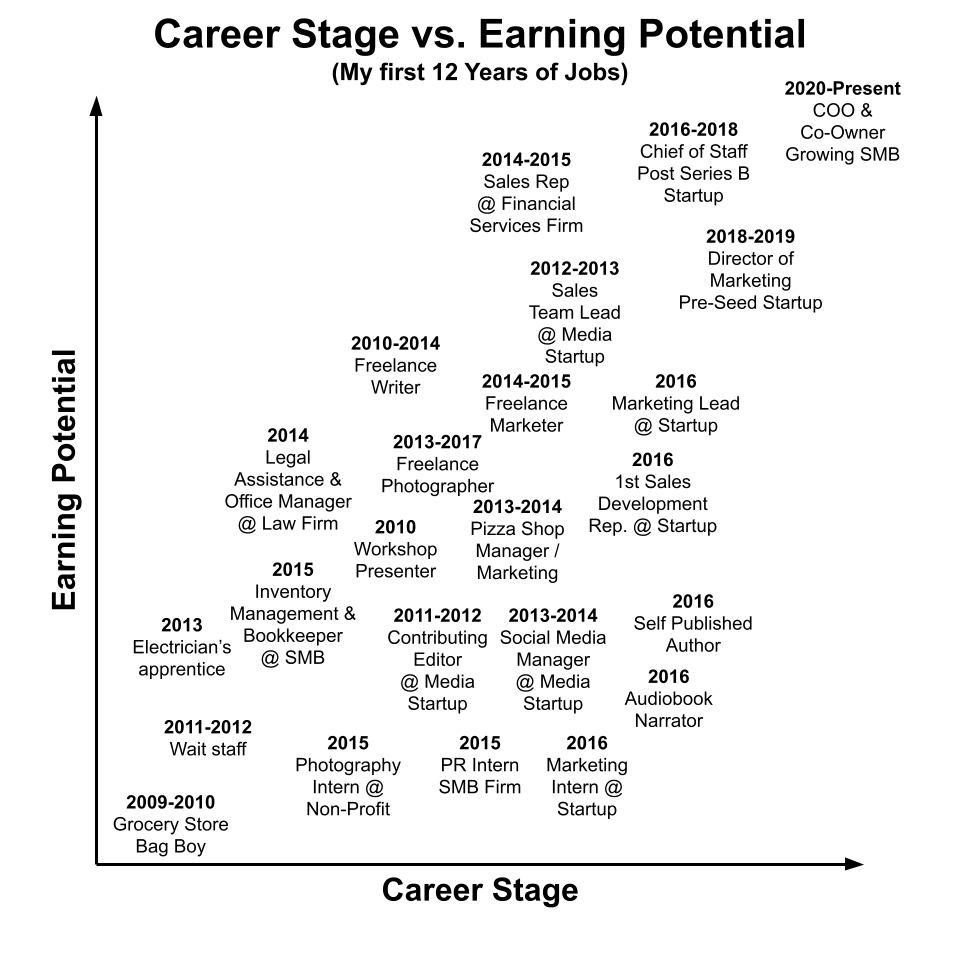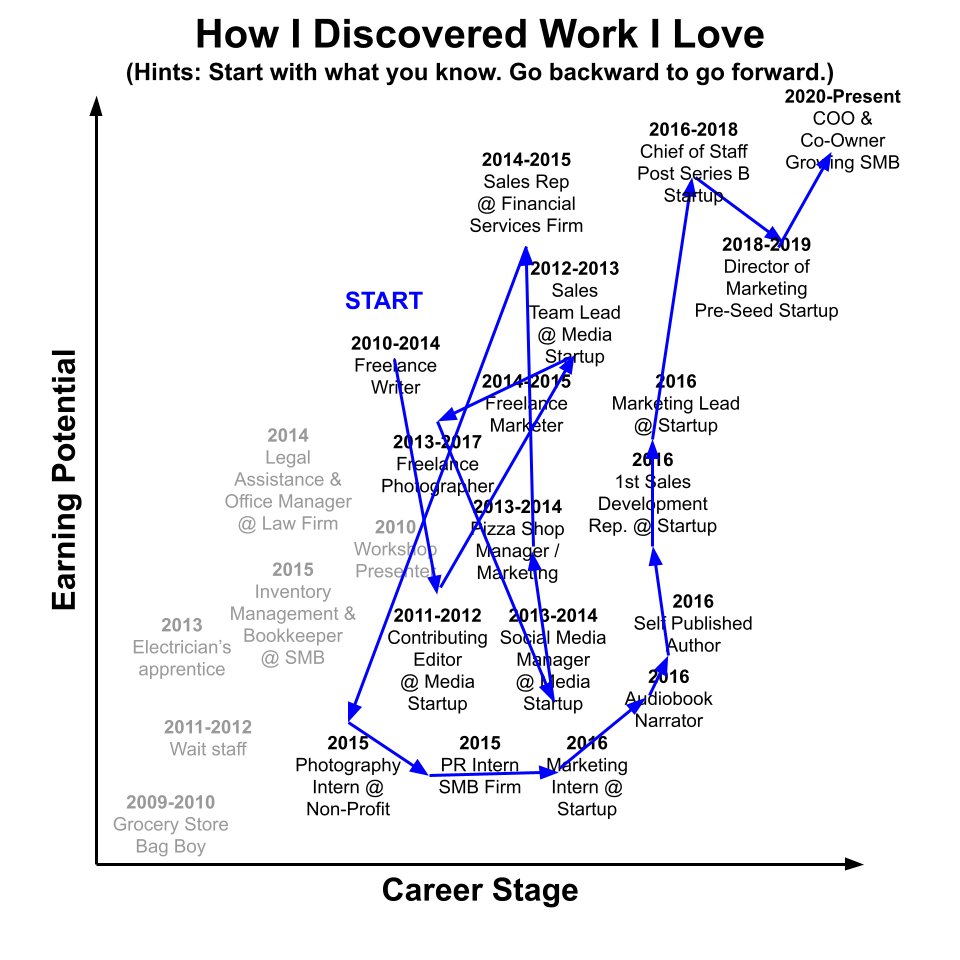The world continues to increase in complexity. On average, we’re poorly equipped to handle this.
Our iPhones and Google empower us to “fact check” and “research” on the fly. While non-stop streams of propaganda (oops – I mean social media) color our opinions.
I often wonder if our perception of knowledge deludes us to our ignorance.
For instance, I know that I’m still fascinated on a regular basis about how abysmally little I know about the world around me. Even the simple stuff. Including things I feel like I know a lot about.
It’s honestly incredible people don’t regularly break down from the sheer overload of complexity in our world.
But beyond my ability to ask other people and observe, I’m limited to my own experience. Maybe other people are much smarter than me. (If I was a dick, I’d add a line here, like “But I doubt it.”) Or maybe most people find bliss in ignorance.
Regardless of how other people experience the world, what chance does a guy like me (who wants to “win” at life) stand at maneuvering through all the complexity? Without wasting my best years sticking my nose inside every textbook within reach.
Facing Down Ignorance
One thing I’ve learned is that I don’t know much about much – even the stuff I think I know a lot about. Re-reading that sentence reminds me of the infamous Mark Twain quote:
“What gets us into trouble is not what we don’t know. It’s what we know for sure that just ain’t so.”
Mark Twain
But nobody likes to be a know-nothing (especially not me). So we do our best when we face situations where we risk exposing our incompetence.
There’s the “fake-it ’til you make it” crowd. Which I now consider myself expatriated from. Basically you just feign competence. Some people do this for posture’s sake. They’re not bothered by the truth of their own ignorance. Others do it to survive – believing firmly in their own ability to hustle and learn so fast they overcome their ignorance before they’re found out (this was me).
Either way, you can only fake it so many times before you’re eventually found out. This isn’t a long-term winning strategy, even if offers temporary gains.
Of course, there are other options too.
The abhorrent “I don’t know” camp comes to mind. This camp accepts the truth of reality agnostically. Whenever you encounter something novel, you admit the truth. “I don’t know.” Of course, that “I don’t know” could mean blind acceptance of your ignorance. Or it could be the fuel to your fire to acquire new information (this is the part of the camp I prefer to inhabit).
But we just can’t learn about everything. There’s simply not enough time.
So, how do we cope with an ever-increasingly complex world, with our ever-finite base of knowledge?
Here’s one potential solution: I like to call it the “knowledge proxy.”
The Knowledge Proxy
I want to tell you a story first before I tell you about knowledge proxies.
For those who don’t already know, one of my guilty pleasures is wine. I love it. Every aspect. I love to drink it. Smell it. Read about it. Learn about it. The history surrounding it. The drama of it. The scandals. The culture. The traditions. The formality. And maybe most of all is that wine demands its own pound of flesh from you before you can truly appreciate all that it has to offer. It’s one of those rare few things left in life that has an extremely high barrier to entry that even money can’t overcome.
Anyway, when I first fell in love with wine I knew very little about the subject. Which can be daunting. And expensive. But when you don’t have much money and you want to learn about something relatively pricey, you’ve got to learn how to place your bets effectively.
Which is exactly what I did when I made an accidental discovery. I take pictures of every bottle I drink that I enjoy. I take notes (even if only mental). At some point I noticed that two bottles I drank both carried the same note on the back – “Imported by Kermit Lynch.” (Who is a famous wine merchant, though I didn’t know it at the time.)
This became a beacon for me. When I didn’t know about a bottle and there was nothing around to help, rather than relying on my own limited supply of knowledge, I looked to the label. If I saw “Imported by Kermit Lynch” I read it as an endorsement – almost like insurance against buying a bad bottle.
It was not a perfect solution. But it did act as a filter. When you’re facing thousands of possible choices, sometimes all you need is a good filter. Rather than picking from among thousands, I found myself picking among dozens.
That’s a knowledge proxy.
Using Proxies to Navigate the World
Proxies, by definition, are simply a substitute. They do not fully protect you against your own ignorance. But they certainly can offer a hedge.
We all use them all the time already. Anytime we take a recommendation from someone. Or even when we rely on our own biases – after all, that’s really what biases are, anyway. They’re just shortcuts. Proxies for actual knowledge.
Proxies by themselves do not perfectly describe or define the world around us. But they can be useful in reducing the complexity enough that our simple ape brains can more effectively manage it.
But, just like anything else, proxies can be prone to error – especially if you’re using some other person’s opinion as a proxy for your own decision-making.
So tread with caution. Though here’s one tip, if I may.
Avoid Single Points of Failure
Having insufficient knowledge of a subject does not get you off the hook for making decisions. But it sure does increase the danger to you.
This is how people get taken advantage of. And if you’re a stupid person, I pity you. Unless of course, you’re stupid by choice. In which case, half of me envies you. And the other half wonders how you’ve survived this long.
Anyway, back to the point here.
Whenever you have insufficient knowledge, relying on a single proxy increases the risk of a bad decision. Because you’ve created a single point of failure.
I’ll repurpose the wine scenario to illustrate what I mean by this.
Let’s suppose for a moment that the “imported by” feature had been a bad proxy for selecting wine. Maybe I’d gotten lucky the first few times. What if I’d been wrong though, and more often than not it represented low-quality wines? That sure would’ve been sour grapes, huh?
While I my knowledge was limited, it sufficed. But as I learned more, I began to add additional layers of proxies.
Rather than rely solely on the “Imported by” proxy, I also began to catalogue the particular regions, grape varietals, and producers I enjoyed.
So I could confidently navigate a wine shop or wine menu by looking for multiple data points – multiple proxies.
If a bottle boasted, “Imported by” + “Desirable grape varietal” + “Region I’ve enjoyed”, then I could be reasonably confident about my selection – and thereby increase the bet I was willing to take (i.e. My willingness to spend more money on a particular bottle increases as my confidence in the selection does.)
The same thing is true in our day to day lives. This is the power of second opinions at work.
Proxies, by themselves, do not excuse us from responsibility for making decisions. They simply help us catalog the world around us when we don’t have all the information.
The more proxies you have, the more boldly you can navigate into uncharted territory. Of course, you can always supplement proxies with your own learnings, too.
But learning how to use proxies – and then layer multiple levels – that can be a true super power in an increasingly complex world.

